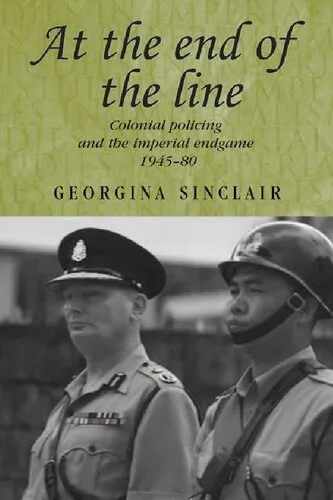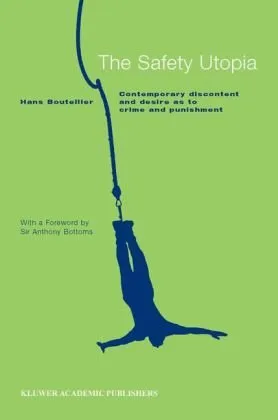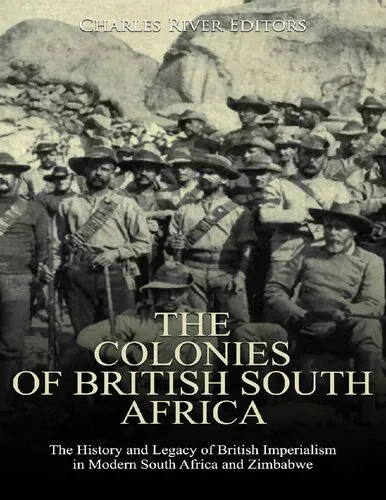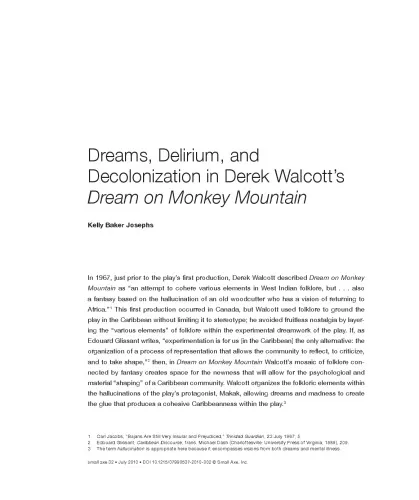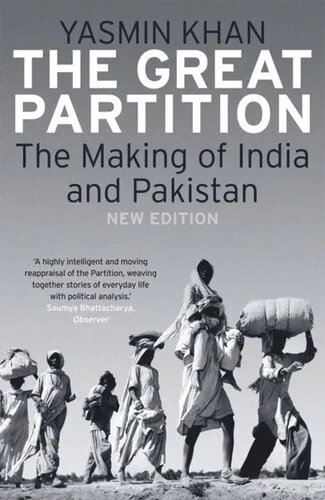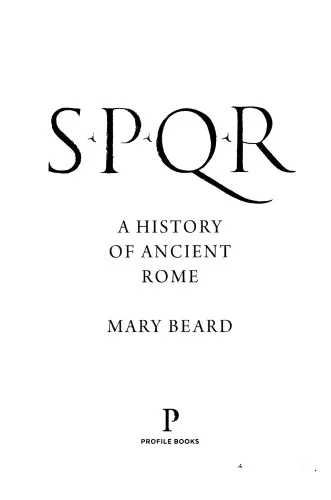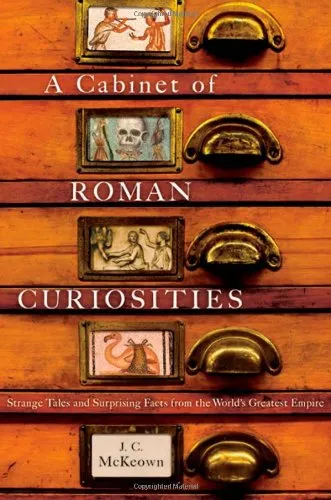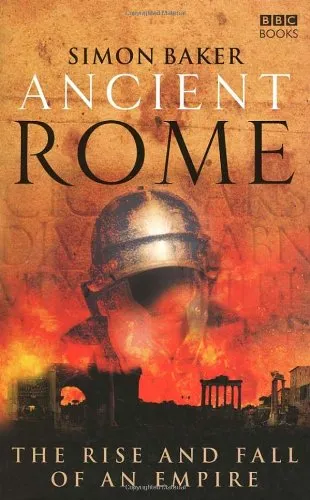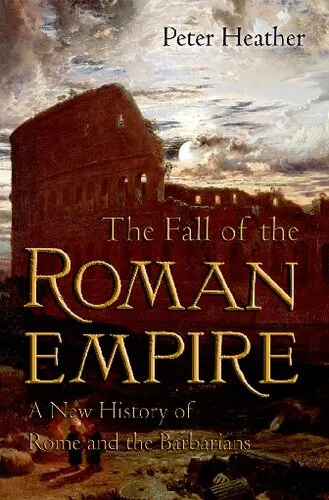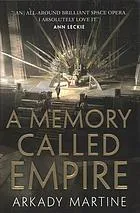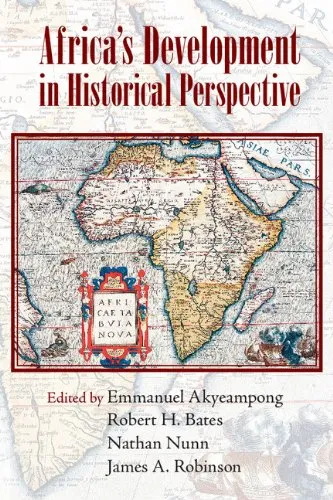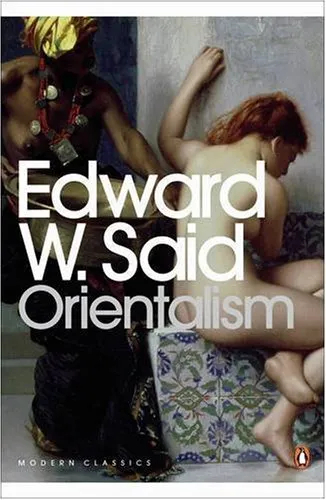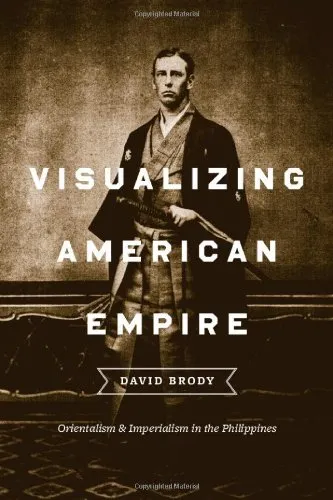At the end of the line: Colonial policing and the imperial endgame 1945–80
4.3
بر اساس نظر کاربران

شما میتونید سوالاتتون در باره کتاب رو از هوش مصنوعیش بعد از ورود بپرسید
هر دانلود یا پرسش از هوش مصنوعی 2 امتیاز لازم دارد، برای بدست آوردن امتیاز رایگان، به صفحه ی راهنمای امتیازات سر بزنید و یک سری کار ارزشمند انجام بدینکتاب های مرتبط:
معرفی کامل کتاب
کتاب «At the end of the line: Colonial policing and the imperial endgame 1945–80» نوشته جرجینا سینکلر به بررسی نقش پلیس استعماری در فرآیند پایان امپراتوریها در دوره پس از جنگ جهانی دوم تا سال 1980 میپردازد. این کتاب با تکیه بر مستندات تاریخی و تجزیه و تحلیلهای جامع، نحوه مدیریت چالشهای امنیتی و اجتماعی در مستعمرات در حال گذار به استقلال را بررسی میکند.
خلاصهای از کتاب
این کتاب کوچکترین جزئیات سیاستهای پلیسی و امنیتی که توسط مستعمرات بریتانیا برای مدیریت دوران پایانی امپراتوری استفاده شدند را باز میگوید. تمرکز اصلی این اثر بر دورهای از تاریخ است که در آن نیروهای استعماری مجبور به تطبیق خود با تغییرات سریع سیاسی و اجتماعی شدند. با تحلیل موارد و اسناد تاریخی، نویسنده چگونگی استفاده از پلیس به عنوان ابزار سیاسی و اجتماعی برای پایدار نگه داشتن قدرت امپراتوری و در عین حال آمادهسازی برای عقبنشینی را به تصویر میکشد.
نکات کلیدی
- تحلیل عمقی از نقش پلیس استعماری به عنوان نیرویی برای کنترل و نظم اجتماعی.
- بررسی استراتژیهای مختلف پلیس در مستعمرات مختلف بریتانیا.
- تأکید بر چالشهای اخلاقی و سیاسی که در مواجهه با جنبشهای استقلالطلبانه وجود داشتند.
- نشان دادن ارتباط بین سیاستهای امپریالیستی و تأثیرات آنها بر جامعه محلی در متراکمترین و بحرانیترین دورههای تاریخی.
جملات معروف از کتاب
«کنترل روزافزون مستعمرات به پلیس، نه به عنوان نگهبان قانون، بلکه به عنوان عامل اقتدار بدل شد. نیرویی که میان مردم و آزادیهای آیندهشان قرار میگرفت.»
«تاریخ نه تنها ساخته نیروهایی است که قدرت را در دست دارند، بلکه توسط کسانی که در برابر آن مقاومت میکنند نیز شکل میگیرد.»
چرا این کتاب مهم است
اهمیت این کتاب در ارائه بینشی عمیق از سیاستهای دوران پایانی امپراتوری بریتانیا است. تحلیلهای دقیق و مستندات گسترده سینکلر باعث شده که این اثر منبعی بسیار ارزشمند برای محققان، دانشجویان تاریخ و سیاستپژوهان باشد. این کتاب با نگاه به گذشتهای نه چندان دور، درسها و تجربیاتی برای مدیریت دوران گذار در جوامع مدرن عرضه میکند، که میتواند راهنمایی برای سیاستگذاران و استراتژیستهای امروزی باشد. علاوه بر این، «At the end of the line» به ما یادآوری میکند که چگونگی مدیریت قدرت و عدالت اجتماعی در گذشته میتواند ما را در درک بهتر مسئولیتهای امروزمان یاری دهد.
Introduction
Welcome to a deep dive into the complex and intricate world of colonial policing during the imperial endgame between 1945 and 1980. "At the End of the Line: Colonial Policing and the Imperial Endgame 1945–80" explores the nuanced role of colonial police forces as they navigated the political and social turbulence of decolonization. This book provides a critical analysis of how these forces attempted to maintain order and authority amidst the collapsing structures of imperialism.
Detailed Summary of the Book
Georgina Sinclair’s "At the End of the Line" is a masterful exploration of the final decades of British colonial rule through the lens of policing. The book charts the transformation and adaptation of colonial police forces across various regions, including Africa, the Middle East, Asia, and the Caribbean. Sinclair provides rich historical accounts and an analytical framework for understanding the intertwined fate of policing and decolonization.
Starting from the post-World War II period, the book delves into the challenges that colonial police forces faced with the rising tide of nationalistic movements and demands for independence. The narrative is built on meticulous research drawing on governmental archives, police records, and contemporary accounts, painting a vivid picture of how colonial authorities used police as instruments of control and stabilization.
The book investigates specific case studies, revealing diverse experiences in different territories while identifying common strategic and operational challenges. Sinclair explores how these forces coped with diminishing legitimacy and the gradual transfer of power, giving readers insights into the everyday realities faced by colonial police officers.
Key Takeaways
- Colonial policing was a dynamic and evolving institution shaped by and shaping the end of imperial rule.
- The transition from colonialism was characterized by tensions between maintaining order and facilitating a transfer of power.
- The book highlights the complexity of policing amidst nationalist demands and scrutinizes how imperial policies failed or succeeded in managing the colonial spheres.
Famous Quotes from the Book
"In navigating the fraught terrain between imperial directive and local realities, colonial police became both the enforcers of empire and its unwitting victims."
"The end of empire was not just a political reformation but a profound transformation of societal order and justice."
Why This Book Matters
The significance of "At the End of the Line" lies in its balanced examination of one of the lesser-studied yet pivotal aspects of decolonization—policing. As post-colonial nations emerged from the shadows of empires, understanding the role of colonial police offers critical insights into the processes of state formation and the legacies of imperial rule. Georgina Sinclair’s research contributes to broader discourses on imperial history, law enforcement, and the socio-political transformations during the mid-20th century. This book is an invaluable resource for historians, political scientists, and anyone interested in understanding the complexities of decolonization.
دانلود رایگان مستقیم
شما میتونید سوالاتتون در باره کتاب رو از هوش مصنوعیش بعد از ورود بپرسید
دسترسی به کتابها از طریق پلتفرمهای قانونی و کتابخانههای عمومی نه تنها از حقوق نویسندگان و ناشران حمایت میکند، بلکه به پایداری فرهنگ کتابخوانی نیز کمک میرساند. پیش از دانلود، لحظهای به بررسی این گزینهها فکر کنید.
این کتاب رو در پلتفرم های دیگه ببینید
WorldCat به شما کمک میکنه تا کتاب ها رو در کتابخانه های سراسر دنیا پیدا کنید
امتیازها، نظرات تخصصی و صحبت ها درباره کتاب را در Goodreads ببینید
کتابهای کمیاب یا دست دوم را در AbeBooks پیدا کنید و بخرید
1338
بازدید4.3
امتیاز0
نظر98%
رضایتنظرات:
4.3
بر اساس 0 نظر کاربران
Questions & Answers
Ask questions about this book or help others by answering
No questions yet. Be the first to ask!
